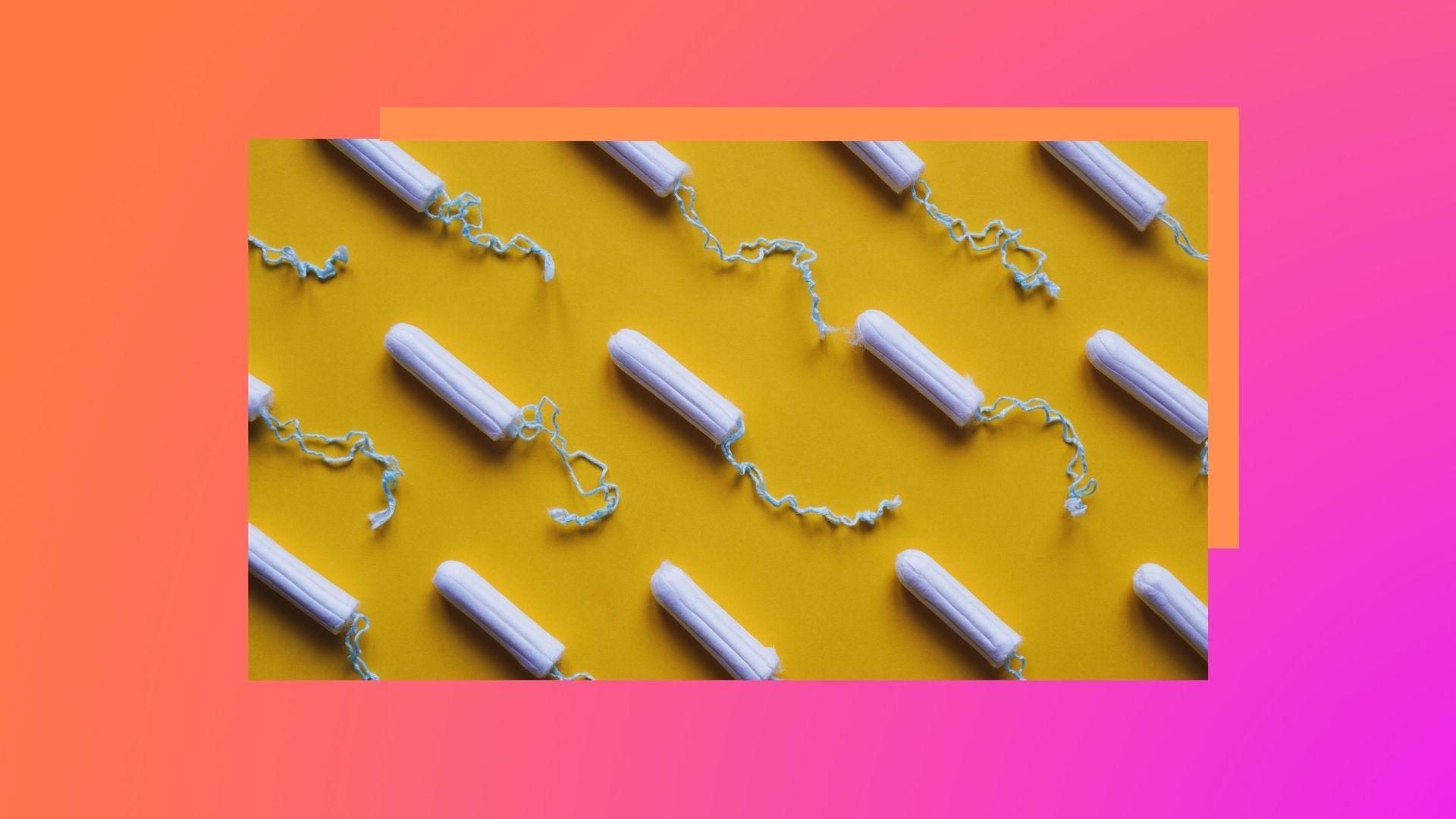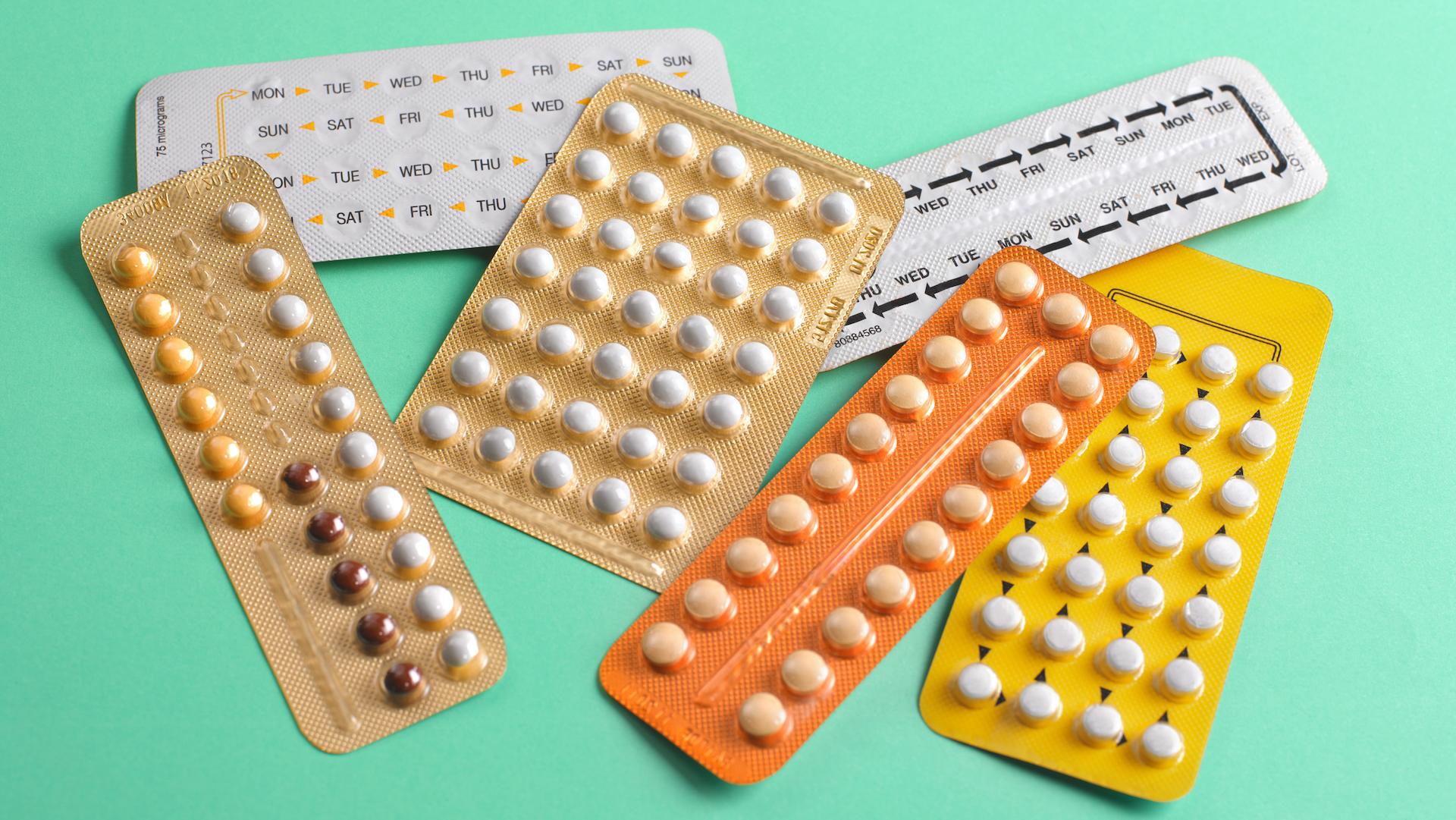Reasons why my period is late: here's what the gynos want you to know
It's not just the obvious


Chances are you've Googled "reasons why my period is late" at least once in your menstruating life. Aunt Flo has a tendency to be finicky, and her absence isn't always easy to pinpoint.
If you have trekked to the cyberspace underbelly to investigate the causes of your menstrual woes, or if you can't quite pinpoint your favorite period tracker apps, allow us to help make things easier. Here's what gynecologists want you to know about missing cycles.
Reasons why my period is late—what the experts say
"Your menstrual cycle is your check engine light," says Kirsten Karchmer, founder of menstrual wellness company Brazen and TikTok period expert. "It's basically your feedback tool for how your body is responding to how you're caring for it."
With that in mind, here are a few possible reasons for a skipped cycle.
(Note: Always seek medical attention when you're feeling unsure, even if you believe issue seems trivial.)
1. COVID vaccines
For the past two years, we've been wondering, "Can the COVID vaccine delay your period?" Unsurprisingly, it certainly can, but fortunately not for terribly long.
According to Dr. Sandra El Hajj, vaccines ask the immune system to work harder than normal, which could in turn affect menstruation. Your shot could possibly result in heavier flows, shorter cycles or no cycles at all.
"The data are pretty clear that while both getting Covid and getting vaccinated disrupts menstrual cycles, but very short term," Karchmer says. "There's no long-term impact, but there have been pretty significant short-term impacts."
Typically, women and people who menstruate get back on track after one or two cycles following their dosage.

2. Secondary amenorrhea
According to The American College of Obstetricians and Gynecologists, secondary amenorrhea occurs when someone who menstruates does not get their period for three months or more.
Approximately 1 in 25 women who are not pregnant, breastfeeding or going through menopause are likely to experience secondary amenorrhea, which is caused by a number of reasons: extreme weight loss, issues with thyroid glands and chronic medical conditions, to name just a few.
As previously mentioned, the only way to get to the root of the problem is with help from a professional.
3. Stress
"Stress is the most underrated [reason]," Karchmer says of missed periods.
Just look at what stress does to the body: it results in illness, causes brain fog, decreases libido—the list goes on. It's no surprise that Aunt Flo is unpredictable when your stress levels are through the roof.
"This is due to the rise in cortisol levels, which can suppress the hormonal cycle responsible for a woman’s periods and ovulations," the experts at Delamere previously told My Imperfect Life.
You might want to consider journaling for stress relief or perusing the best meditation apps to help you slow down. When in doubt, exploring the best self-care practices for you is always a good idea. (And let's be honest: who doesn't love a good bubble bath?)

4. Polycystic ovary syndrome (PCOS)
PCOS is a metabolic condition that impacts your ability to use sugar, and you'll need to regulate its impact with a regular exercise routine and stress-relievers.
Per HealthLine, PCOS causes the production of more male hormones than normal, which can, in turn, stop ovulation from taking place. Symptoms include facial hair growth, mood swings and possibly infertility issues.
5. New medication or birth control
The side effects of birth control include changes in your cycle, and abnormalities could depend on which method you opt to use: those who select IUDs might encounter spotting or irregular periods, whereas those who take the pill can experience lighter periods.
"[Side effects] really vary from person to person," Yale Medicine's Samantha D. Baer, MD, previously told My Imperfect Life. "Sometimes that can be controlled based on the dosage and the formulation. Other times it means we might have to look at other methods that don't have those same side effects."
Additionally, blood thinners, antidepressants and steroids, among other medications, are also capable of doing the same.

6. Overexercising
Yes, there is too much of a good thing. Case in point: overexercising. Hitting the elliptical too hard and increasing those gym visits might negatively impact your period.
"You need resources to make hormones, and when women are overexercising, their resources become depleted," Karchmer says. "They're using a lot of their resources from the foods that they eat to build muscle and to provide energy while they're training. Those resources get devoid away from making hormones, which can delay your period."
Have a look at the best workout routine for your age. This will ensure that you're getting the fitness in that you need without overexerting yourself. (While you're at it, might as well peruse the best workout clothes, too.)

Regardless of what's happening down below, it's crucial to prioritize your gynecological health.
"When in doubt, always check with your doctor," Karchmer insists. "You won't ever regret being overly cautious, even if you want to try a fully natural approach to any of these problems [above]."
The best way to ensure that you're getting the care you desire, according to Karchmer, is to find an OBG/YN with the same values.
"We have to retrain the way women and people with periods think about their health," she adds. "We have to stop just tolerating all types of crazy things happening with our cycles."
Kirsten Karchmer is a health-tech pioneer, author and the founder of Brazen. She worked with over 10,000 women while spearheading The Texas Center for Reproductive Acupuncture.
Dr. Samantha Baer specializes in gynecology and obstetrics. She earned her degree from the University of Florida College of Medicine did her residency at Tufts New England Medical Center.

Need a TV show recommendation? Maybe a few decor tips? Danielle, a digital news writer at Future, has you covered. Her work appears throughout the company’s lifestyle brands, including My Imperfect Life, Real Homes, and woman&home. Mainly, her time is spent at My Imperfect Life, where she’s attuned to the latest entertainment trends and dating advice for Gen Z.
Before her time at Future, Danielle was the editor of Time Out New York Kids, where she got to experience the best of the city from the point of view of its littlest residents. Before that, she was a news editor at Elite Daily. Her work has also appeared in Domino, Chowhound, and amNewYork, to name a few.
When Danielle’s not writing, you can find her testing out a new recipe, reading a book (suggestions always welcome), or rearranging the furniture in her apartment…again.